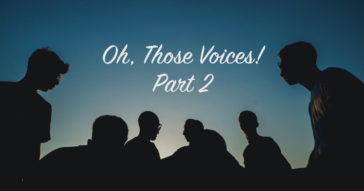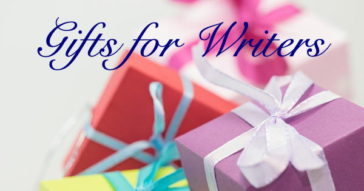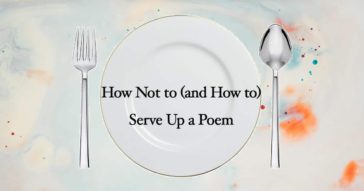Oh, Those Voices! (Part 2)
Welcome back to our discussion about the writer’s voice! If you’ve worked through the exercises in Oh, Those Voice (Part 1), you should have some idea about the nature of your raw voice. That is your starting point. As writers we need to be able to shape our voice each time we write. And for each thing we write it may be a differently shaped voice. Still yours, but molded to fit what you are writing. And, hopefully, a voice … Read More »






